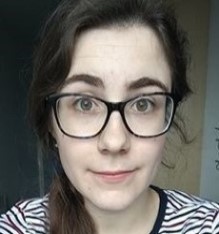By Margaret-Ann Withington //
 The project focussed on an article which took a total of 105 subjects and gave them a range of Mathematics questions. The questions originally written in French were 6 lines long and were either classified as ordinal or cardinal problems. The subjects were asked questions which were either solvable or a distraction problem and asked to identify if the question could be solved.
The project focussed on an article which took a total of 105 subjects and gave them a range of Mathematics questions. The questions originally written in French were 6 lines long and were either classified as ordinal or cardinal problems. The subjects were asked questions which were either solvable or a distraction problem and asked to identify if the question could be solved.
The results of the study claimed that the subjects attempted to use a three-step method on the cardinal problems and a two-step problem on the ordinal problems. In all of the questions the information required to solve with the three-step method was removed, the researchers stated that subjects incorrectly identified cardinal problems are insolvable and ordinal problems as solvable.

When we looked at the questions used for the study, we found that they were not consistent across the two classifications. Ordinal problems often contained “filler lines”, lines of information irrelevant to the question, to appear the same length as the cardinal problems. From individual inspection we identified that the cardinal problems were more ambiguous than the ordinal problems however there was no measure that could be applied to compare.
The aim of this research project was to find a method of quantifying the ambiguity of a word problem. Focussing on entropy techniques, the project explored different points at which the entropy could be evaluated and what effect that had on the value associated. The final formula calculated the entropy of a subject following the desired path of interpretation and reaching a correct answer. The input used to calculate it was the percentage of candidates who answered the question correctly.

Throughout the process of producing our model we encountered multiple challenges. One of the benefits of working with multiple supervisors was we were never short of ideas or people to identify problems and provide solutions. Throughout the project I found myself switching from multiple tasks and it was a challenge to preserve with some of the less enjoyable or difficult tasks.
Working with multiple supervisors was a unique but positive experience. Having multiple ideas and options to explore meant that throughout the project if something didn’t work, I could easily switch to a different tactic. In future projects I would like to try to stick on tasks for longer and develop greater perseverance skills.
This experience has allowed me to understand what elements of research I enjoy; I also have developed skills in sharing tasks within a project as well as sharpening my initiative through finding ways to make the best use of my time when encountering setbacks. The project has also given me teamworking skills which would benefit me in an industry role or further collaborative research projects.
*To view Margaret-Ann’s research poster and presentation recording, please click on the thumbnails below:

